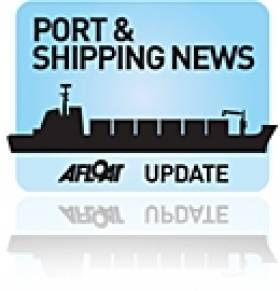Displaying items by tag: AntiPiracy
HMS Cumberland Returns to Libya On Evacuation Mission
The Royal Naval frigate HMS Cumberland (F85) departed Malta today, to conduct a second evacuation mission of stranded nationals in Libya. In the early hours of this morning, HMS Cumberland had arrived into the Grand Harbour, Valetta, Malta with 207 stranded people, after departing the port of Benghazi on Thursday, writes Jehan Ashmore.
According to the Commanding Officer, Captain Steve Dainton, said: "The ship's company have responded magnificently. Ten days ago we were off the coast of Somalia conducting counter-piracy operations. I think it gives an indication of the flexibility and the versatility of a British warship and indeed of the ship's company onboard."
Following the first evacuation, HMS York was expected to arrive in the vicinity of the Libyan coast, should further assistance be required by HMS Cumberland. To read on the latest developments click here and this link too.
In addition the US authorities had chartered a fast-ferry catamaran to bring back stranded US nationals and other nationalities from Tripoli, the capital of Libya. The fast-craft vessel arrived in Valetta last night.
As the crisis was unfolding in Libya, HMS Cumberland was returning to the UK via the Suez Canal after completing a four-month operation in the Gulf, where her duties included helping to protect Iraqi oil platforms. The installations account for nearly 90% of Iraq's national income.
A sistership of HMS Cumberland, the 1986 built frigate, HMS Chatham (F87) was the last Royal Naval visitor to call at Dublin in late November
(click here and for photo).
At the time of HMS Chatham's visit to the capital, the 1988 built frigate had recently returned to UK waters, after also been engaged on anti-piracy duties, while off Somalia.
When HMS Cumberland has completed duties off Libya, the frigate, as originally planned is due to resume her voyage home to UK waters. The British Ministry of Defence are to decommission the 23-year old vessel.
Both frigates are 'Broadsword' Type 22 Frigates (Batch 3) along with HMS Campeltown (F99) HMS Cornwall (F86). All four frigates were launched during the mid 1980's and have a crew of 250-sailors.
Royal Navy Anti-Piracy Frigate Visits Dublin Port
The Royal Navy's Type 22 frigate HMS Chatham (F87) which recently returned to UK waters after a seven month deployment on anti-piracy duties off Somalia, visited Dublin Port last weekend, writes Jehan Ashmore.
HMS Chatham was the lead vessel for NATO's 'Operation Ocean Shield' as part of a multi-national task force in the seas off the African state that in recent years has become notorious for piracy.

HMS Chatham departs Dublin Bay and the rocks off Dalkey Island. Photo: Jehan Ashmore /ShipSNAPS
The frigate departed Dublin on Monday afternoon and set an easterly course off the Baily Lighthouse, but surprisingly the 5,300 tonnes vessel returned into the bay. HMS Chatham then crossed the bay towards Sandycove. From there the 148m vessel which has a draft of 6.7m veered in a south-easterly direction, to sweep past off the rocky outcrop, to the north of Dalkey Island and continued southbound off The Muglins.
In mid-November the frigate visited her namesake port on the Medway to mark the 20th anniversary since the vessel's commissioning at Chatham in 1990. The occasion was also the first time that such an event had taken place outside a Royal Navy establishment.
Built in 1988, the vessel was launched from the Swan Hunter shipyard on the Tyne and is normally based in her homeport of Devonport, Plymouth.
























































